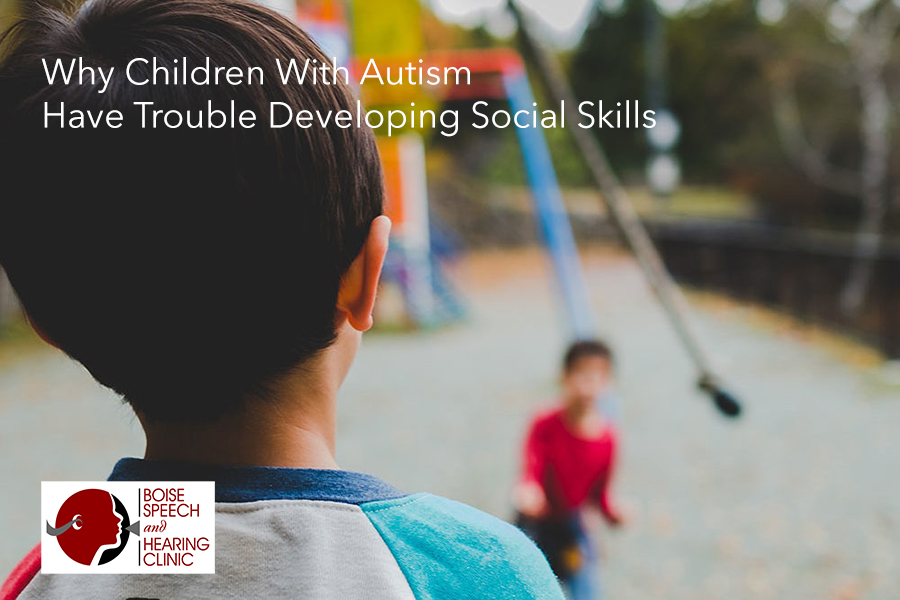A trademark symptom of Autism is difficulty with social skills and social thinking. Social thinking is something that most of us take for granted. It is generally an intuitive process that allows us to consider the point of views, emotions, and intentions of others. For children with Autism, social thinking is not hard-wired at birth and they have to be taught how to think socially and understand the use of social skills. A toddler with Autism may insist on playing with toys alone, completely unaware of others in his environment. A child with autism may appear to be uninterested or have difficulty making friends at school or playing alone on the playground.
Lack of Eye Contact
When you are having a conversation with somebody, you typically look at their face and into their eyes. Doing so allows you to connect with them emotionally and lets you pick up on more subtle social cues. Children with Autism do not intuitively understand that eye contact has a deeper social meaning. By not developing the social rule and understanding of eye contact, children with Autism have difficulty understanding body language, facial expressions, and social cues which adversely affect their social development.
Learning What Interests Them
Another major effect of Autism is that they quickly learn and develop narrow interests, which could range anywhere from music to technology. Children with Autism are rigid in their interests and often do not talk about a variety of topics. They may develop an advanced vocabulary in one area of interest but lack of overall communication skills. For example, a child interested in dinosaurs may develop a complex vocabulary of dinosaurs species, but little else. Due to the narrow interest and rigidity of topic, they may not demonstrate an interest in learning about or interacting with others that do not share the same interests.
Unable to Understand Non-verbal Communication
Children with Autism often are unable to perform different forms of nonverbal communication, such as pointing, waving, using their hands for expression, or body language. They also have difficulties interpreting similar actions from others.
The inability to understand and interpret non-verbal communication makes social interactions difficult. For us, it would be like trying to talk, but only able to use half of the letters of the alphabet. Children with autism miss out on social cues in conversation and may only hear the words somebody is saying, but not understand their meanings.
Getting Your Child Help
Learning social thinking skills is very important for children with Autism, as we know that these skills are not intuitive and need to be taught. They require a specialized therapeutic approach, by a trained Speech-Language Pathologist.
At Boise Speech and Hearing Clinic we offer Autism Social Groups based on the “Social Thinking” curriculum by Michelle Garcia Winner. Our groups provide a safe place for children with Autism to practice and learn social thinking skills necessary to succeed. We treat children of all ages starting at 4 to 21.
If you would like to learn more, visit our page dedicated to explaining the benefits and process of our Autism Social Group.
Photo by Simon Launay on Unsplash


